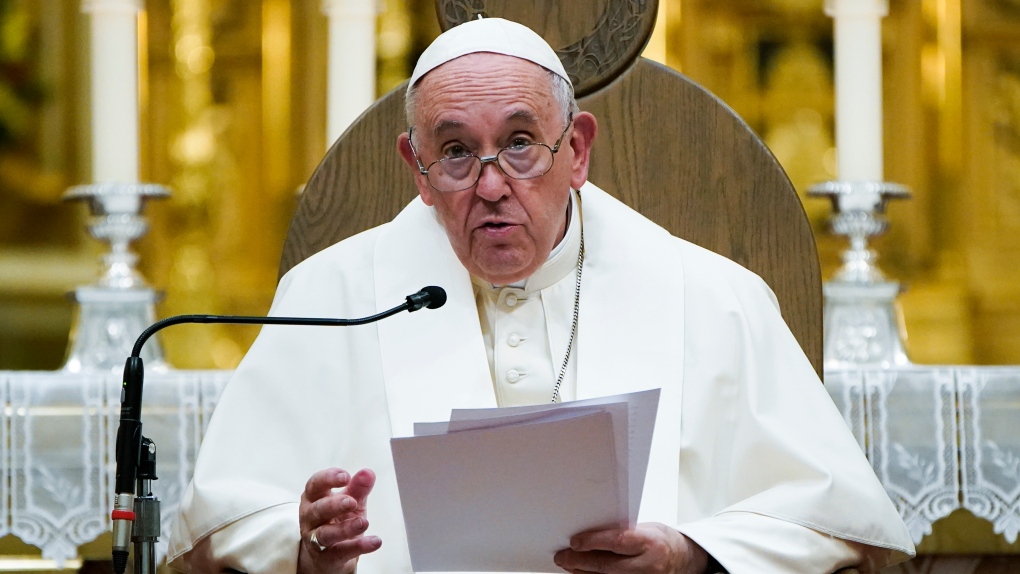Pope Francis Speaks: “Take History Seriously!”
 On 21st November 2024, Pope Francis released a letter titled “Sul rinnovamento dello studio della storia della Chiesa” (On the Renewal of the Study of Church History). The letter encourages renewed academic and pastoral approaches to Church history, advocating for interdisciplinary methods that integrate theology, culture, and modern historical perspectives.
On 21st November 2024, Pope Francis released a letter titled “Sul rinnovamento dello studio della storia della Chiesa” (On the Renewal of the Study of Church History). The letter encourages renewed academic and pastoral approaches to Church history, advocating for interdisciplinary methods that integrate theology, culture, and modern historical perspectives.
The aim of the letter is to move beyond rote historical facts and cultivate a dynamic connection between the Church’s past and the current needs of society and the faithful: “What I would like to emphasize here,” the Holy Father writes, “is the importance of developing a genuine sense of history in young students of theology. The study and writing of history helps to keep the flame of collective conscience alive… to develop a better sense of proportion and perspective in coming to understand reality as it is and not as we imagine it or would prefer reality to be.”
Pope Francis thus emphasizes the critical importance of historical memory and the study of history in our contemporary world. A world in which seem to dominate “the avoidance of history,” “a present without past,” and the “tendency to dismiss the memory of the past or to invent one suited to the requirements of dominant ideologies.” He argues against existing trends to dismiss or manipulate the past, highlighting how false or artificial memories can be used to construct exclusionary identities and justify harmful actions.
The work of historians is presented as a crucial antidote to misrepresentations and partisan revisionism, offering a rigorous method for interpreting the past and understanding its complexities. Historians have a moral role to play in society. What they write has to mean something for men and women of our time, drawing from both the past mistakes and the wisdom of the past, to build more reconciled and life-giving societies. As the Pope writes, “the search for historical truth is necessary to allow the Church to initiate – and help initiate in society – sincere and effective paths of reconciliation and social peace.”
Therefore, the Pope argues, remembering historical atrocities, such as the Shoah, atomic bombings, and ongoing ethnic killings, is essential for progress and moral development. He also emphasizes the importance of remembering acts of goodness and dignity amid inhumanity. The passage concludes by asserting that while forgiveness is possible, it should not equate to forgetting, and that an honest engagement with history is necessary for the Church and society to move forward constructively.
The study of history protects us from a triple risk, namely, “mistaken apologies,” “overarching reductionism,” and purely chronological narratives. The said risks may lead to “ecclesiological monophysitism,” which is based on an angelic conception of the Church, presenting a Church that is unreal because she lacks spots and wrinkles.
Using a deeply Ignatian understanding of religious institutions, Pope Francis applies the Study of the Church to the appreciation one might have of his/her mother. The Church, he writes, “like our own mothers, must be loved as she is; otherwise we do not love her at all, or
what we love is only a figment of our imagination,” with “her mistakes and failures.” A Church that, also, “strives to heal and renew herself, even if she at times does not succeed.”
We are immensely grateful to the Holy Father for the spirit of renewed humanism he instills in ecclesiastical studies. His vow to renew historical research highlights important teachings of his pontificate. From the enthusiasm in teaching history that recalls evangelii Gaudium, to the ultimate goal of a fraternal society proposed by Fratelli Tuti, one sees the same spirit from a reforming papacy. More than that, the letter discussed here brings us back to the question of listening anew to the spirit that has been speaking to the churches not only today, but for over the past two thousand years. Because if we don’t take history seriously, we run the risk of taking historical accidents as dogmas, which is contrary to the spirit of a synodal Church.
Jean Luc Enyegue, SJ
Director – JHIA




